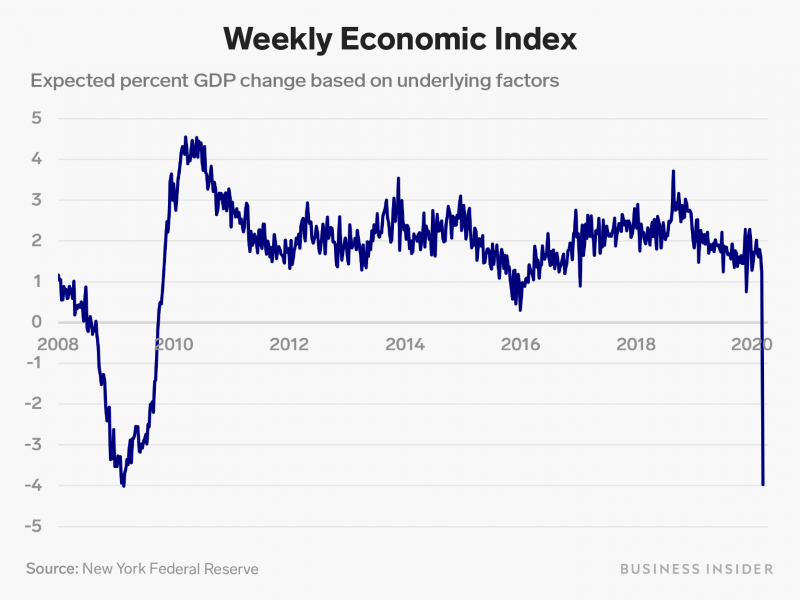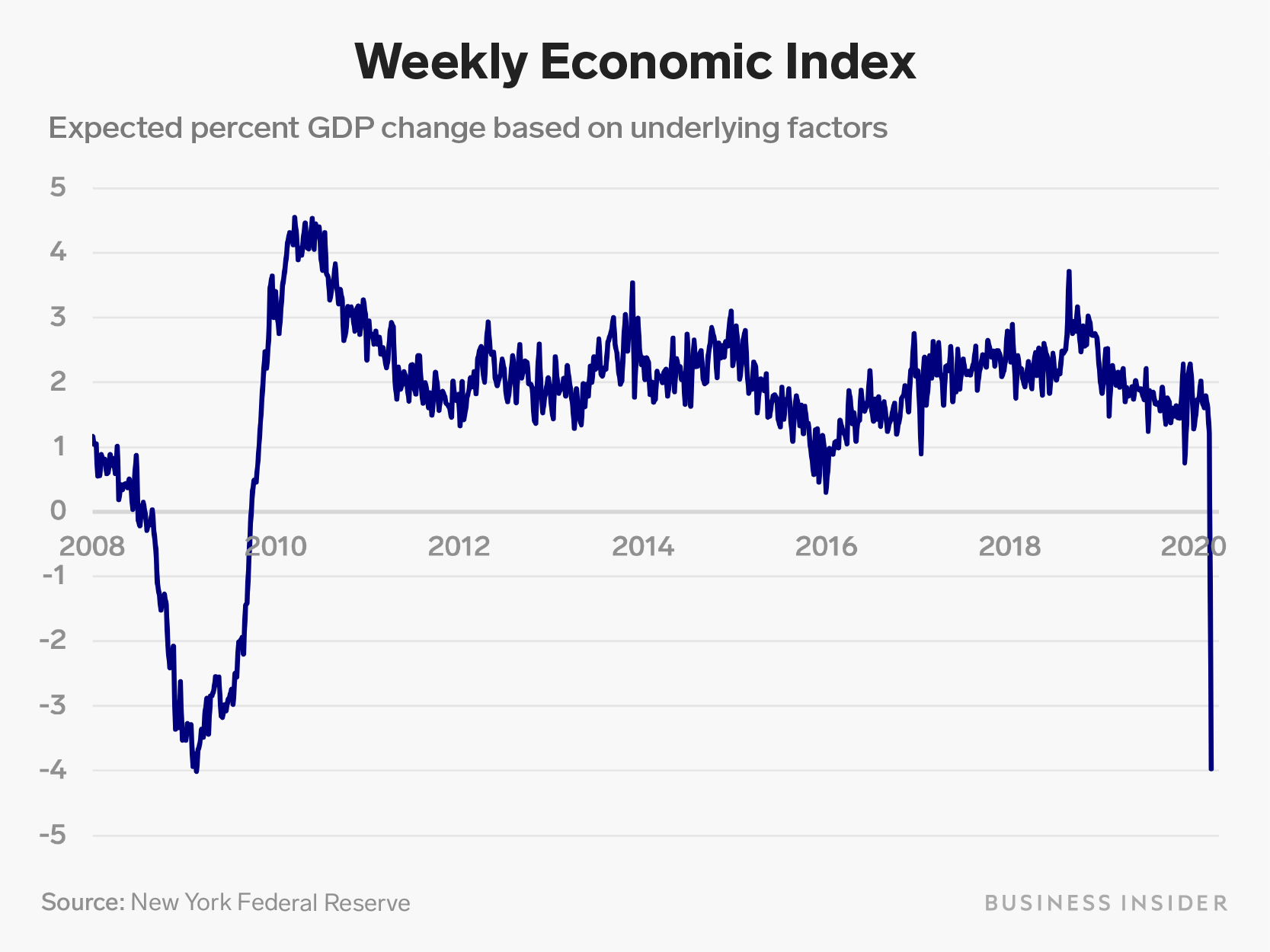- The New York Federal Reserve’s Weekly Economic Index shows the US economy has already plunged to Great Recession lows.
- The index measures the expected GDP percentage change based on a number of factors, including unemployment claims and estimates of gasoline and diesel sales during the week ending March 21.
- Unemployment claims were a record high 3.3 million for that week, and even those paled in comparison to the next, for the seven days ending March 28, as another 6.6 million Americans filed for unemployment.
- The next Weekly Economic Index is sure to be harrowing.
- Visit Business Insider’s homepage for more stories.
It’s feeling a lot like 2009 again, at least according to the New York Federal Reserve.
The New York Fed computes a Weekly Economic Index to measure economic activity in real time, and its most recent calculations show the US economy has already plunged to Great Recession lows amid the coronavirus pandemic.
To identify the economic impact on a weekly basis, the New York Fed creates an index out of a variety of measurements: Unemployment claims, retail sales growth, temporary employment data from staffing companies, estimates of raw steel production, electricity output in the US, and estimates of gasoline, diesel, and jet fuel sales. The measurements are then used to estimate GDP growth.
For instance, a reading of 2% on the index in any given week means that if that week’s conditions persisted for an entire quarter, the GDP would grow by 2% relative to the previous year.

As of March 21, the expected change in GDP had plunged to -4%. That was last seen in 2009 - the lowest low of the Great Recession.
We don't have access to all the data the New York Fed crunched, but the week ending March 21 saw an unprecedented spike in jobless claims. A record 3.3 million unemployment claims were filed that week. The New York Fed also cited a "sharp decline in consumer confidence and fuel sales" as a driving factor. Jobless claims spiked to a second consecutive weekly record, with the Labor Department reporting 6.64 million Americans filed for unemployment the week ending March 28.
Days before, Dartmouth College professor Danny Blanchflower had correctly forecasted that total jobless claims for March would reach 10 million, in an interview with the Financial Times. "Unemployment is rising 20 times faster than in the financial crisis," he said.
The Financial Times also reported that early figures suggest people out of work in both the US and Europe is already comparable to the numbers for between 2007 and 2009. It noted that in European countries, the majority of affected workers have been laid off on a temporary basis and will have a job to go back to, as governments have stepped in to support part of their wages during this downturn.
The next Weekly Economic Index is sure to be grim reading, too. And it's just a hint of how rough it is out there.

